| |
State of the streets
http://richmondconfidential.org/2013/09/16/state-of-the-streets/
(Photo by: Sukey Lewis)
By Sukey LewisPosted September 16, 2013 9:40 pm
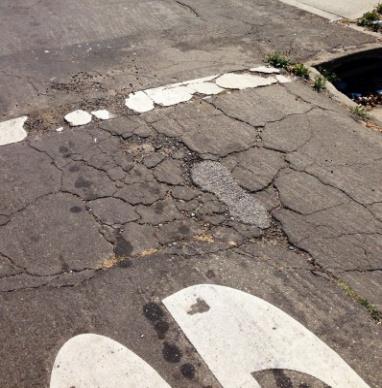
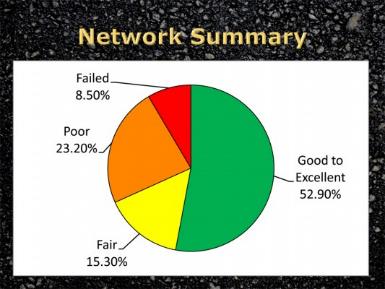
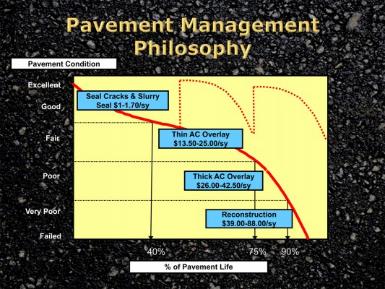
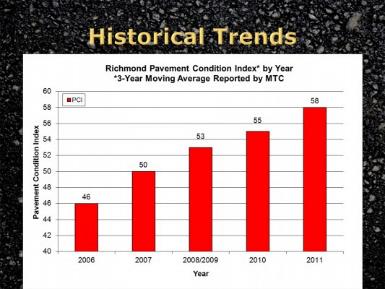
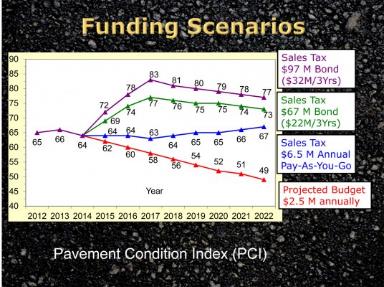
(Photo by: Sukey Lewis)
The pavement buckles up into a mound directly in front of the house where Elizabeth has lived for 47 years. The bump in the pavement is five feet long and one and a half feet wide—or the size of a small person lying down.
“A few years ago that lady’s daughter tripped on that hump,” Elizabeth says motioning to her neighbor’s house on the left. “I called the city, and they dug up the hump, but it buckled up again right away.”
Elizabeth (who declined to give her last name) stands in front of her house on 21st St. The grass is clipped, and red geraniums peek from behind a manicured bush. “My street has been in a bad condition for a long time,” she says, “I don’t like it.”
Long “alligator” cracks run the length of the street, and loose asphalt from poorly patched potholes rattles against the undercarriage of a small truck driving by.
Elizabeth’s story is not unusual in Richmond. And, if funding continues at present levels, complaints like Elizabeth’s are going to become more common, Associate City Civil Engineer Tawfic Halaby says. “In the last two to three years the amount of funding that has been available [for street maintenance] has decreased. It’s a reflection of the financial situation our city is in.”
“We’ve got an even deeper problem we haven’t talked about much,” councilmember Tom Butt says “Because of the Chevron fire, the assessed value of properties [in Richmond] went down $1.8 billion. Richmond is going to have a several million dollar budget shortfall this year.”
“In 2006 the people of Richmond made it clear that paving was a priority,” Halaby says. “The city council made it a priority and pumped more money into paving.” In the ensuing four years, with the street budget at around $7 million per year, one quarter to one third of Richmond’s roads received some kind of “treatment,” from minor preventive treatments to major reconstructions.
Since 2010 these funds have dwindled away, according to figures from the city. The current budget for streets is somewhere between $2 and $2.5 million per year. “That might sound like a lot of money, but given the total miles of pavement we have to pave, it doesn’t go far enough,” Halaby says. “Right now we would need $100 million to fix all the streets.”
In response to the decreased level of funding, the Richmond City Council is considering ways to get new revenue into roads. On May 28th, Halaby presented the council with a number of options all of which involve some kind of new tax to pay for pavement.
This Tuesday, September 17th, Halaby will return to the city council to ask for approval to enter into a contract with polling company Godbe Research. It will ask, “Are people willing to tax themselves at all for streets?” Butt says. “If the answer is a resounding no, you don’t go any further.”
Butt and Halaby are borrowing the idea from Richmond’s neighbor, El Cerrito. In 2008, the voters passed Measure A, a half-cent sales tax, to pay for streets. In three years, the city managed to improve its street quality from 52 (relatively poor) on the Pavement Condition Index (PCI) in 2007 to 80 PCI in 2010.
But there is no guarantee that Richmond residents are willing to accept a new tax. “What’s happening to the money?” asks long-time homeowner Elizabeth, “Where is the Chevron money going?” She says she is suspicious of the city’s priorities. “They redid Cutting [Blvd.] but stopped repaving at 37th.” There is a sense among some residents that the city focuses resources on well-to-do neighborhoods.
StreetSaver, a software program developed by the Metropolitan Transportation Commission (MTC), uses an algorithm to determine the most cost-effective ways to use city resources, says Sui Tan, program manager for MTC. “The highest benefits come from preventive maintenance type of work, it will always score higher than total reconstruction. We need to maintain good roads so they will last longer.”
Halaby says there has been a shift of focus away from the worst streets even though, “it is painful to do that.” He says, residents wonder, “’How can the city do this to me? I pay the same taxes as the person next to me, but they are getting their street paved? Here I am, I live on a street in failed condition. They’re not paying attention to me.’ This is the reality our residents have to live with.”
Currently about one-third of Richmond’s roads are in poor or failed condition, according to Halaby’s estimates. Going strictly by MTC prioritization, it is unlikely these streets will ever get fixed, Halaby says. “We occasionally pick up a few streets here and there which aren’t included in the MTC list of recommended streets,” he says. “But how much do we really want to spend on a failed street?” There are thirty neighborhoods all of which contain at least one failed street. “We have only one pot of money. They [failed streets] take up a lot of budget.”
Elizabeth can tell you the history of every house on her block. One of her neighbors bought his house for $175,000. It is now worth $75,000. “It messed up the whole world,” Elizabeth says of the 2008 home mortgage crisis. Exacerbating this drop in market values are the bad roads.
“You’ve got to live with what you’re willing to pay for,” says Butt. If its contract is approved on Tuesday, Godbe Research will ask residents not only if they are willing to pay a tax, but also “What type of tax? Sales tax? Parcel tax? If so, how much are they willing to pay?” Halaby says. If residents indicate willingness, the new tax will most likely be added to the ballot in 2014.
If nothing is done, Richmond’s roads cannot help but continue to decline. In 2003, Halaby was a consultant for the city, “MTC published an article about the state of the pavement, ranking all the cities. At that time, Richmond was at the bottom.” Now, Halaby asks, “Are we going to revert back to that?
|
|

